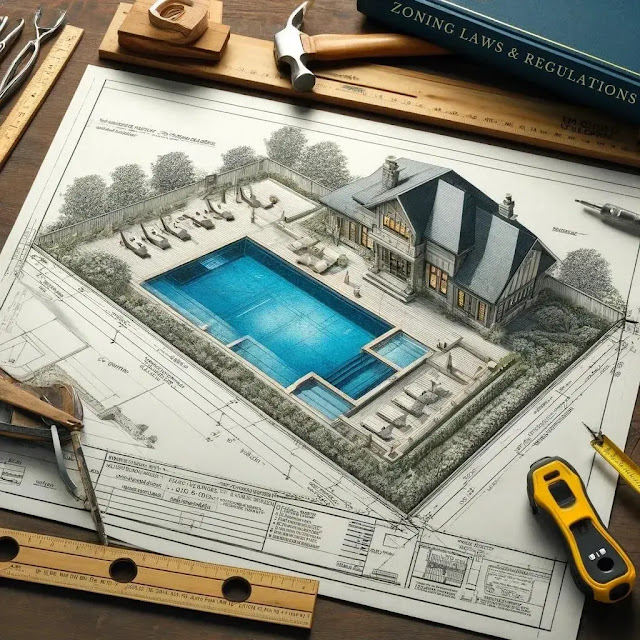Building Your Dream Pool: A Guide to Understanding Zoning Laws and Regulations
Over 10 million homes in the United States feature private pools, showcasing the popularity of creating a personal oasis. However, realizing this dream involves more than selecting an appealing design—it requires compliance with local zoning laws and regulations, which influence your pool's size, location, and safety features. Understanding these laws is essential, and with the right knowledge, you can enhance your property with a beautiful pool without legal complications.
Comprehending Pool Zoning Laws
Before starting your pool project, it's vital to understand the local zoning laws affecting your pool’s design and construction. These regulations differ by area but commonly include stipulations on pool placement, fencing requirements, and noise control. For example, some localities might require a pool to be set back a certain distance from property lines or buildings, emphasizing safety, privacy, and community welfare. Ignoring these regulations can lead to fines or delays, so it’s crucial to research thoroughly and consult with professionals to ensure your pool meets both your dreams and local standards.https://medium.com/@ingroundpool.instal/the-legal-blueprint-essential-contractual-elements-for-hiring-inground-pool-builders-61bd7356ce51
Mastering Pool Construction Regulations
After familiarizing yourself with zoning laws, the next step involves navigating construction regulations, which dictate how your pool should be built. Key areas to consider include:Permitting: Secure a construction permit by submitting a detailed project plan, which varies depending on location.- Water Safety Laws: These rules mandate safety features like fencing and depth markers to prevent accidents.
- Environmental Regulations: Some areas impose restrictions on the chemicals used in pools or the types of pumps installed to minimize environmental impact.
- Health and Sanitation Guidelines: Compliance with these ensures your pool does not pose a public health risk, necessitating regular maintenance and cleanliness.

.jpg)
Comentarios
Publicar un comentario